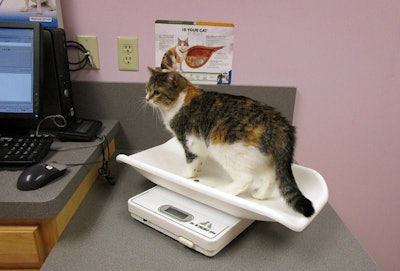
Among nearly 30 sessions on pet nutrition, pet food ingredients, processing, safety and the market during Petfood Forum 2019, April 30-May 1 in Kansas City, Missouri, USA, several common themes emerged that capture some of the key issues affecting the pet food industry today. For example, pet obesity, the “omnichannel” nature of how pet owners shop for pet food and a possible over-emphasis on marketing trends all were subjects at least touched on by multiple speakers.
Yet two inter-related themes particularly stand out: the need for education on pet food and nutrition for both veterinarians and pet owners, and the opportunities available for vets and pet food companies to connect and collaborate on pet owner education.
Stop giving pet owners what they think they want
Katy Nelson, DVM, host and executive producer of “The Pet Show with Dr. Katy,” and associate veterinarian at the Belle Haven Animal Medical Centre in Alexandria, Virginia, USA, set the tone with her opening keynote. Challenging the industry to stop catering to so many pet food trends and consumer demands, she said, “We need to stop giving people what they think they want; start educating them and telling them what their pets need. Do the research, please, and release it! Help vets, too; they crave real, solid information, and so do pet owners. If they don’t get it from vets or pet food companies, they go to Dr. Google.
“Vets can be pet food companies’ biggest ally, but they need the research,” she added.
Nelson made many of her comments in the context of her main focus: pet obesity and how it relates to, and in some ways stems from, the human-animal bond. She quoted Jenni Woods Legare, DVM, a fellow member of an online group called DVM Moms: “Obesity greatly erodes the human-animal bond.”
Nelson believes pet food companies could and should help vets and pet owners address the rising rate of pet obesity, another challenge she made to the Petfood Forum audience. “Find a way to honor the bond,” she said. “With every single meal, somehow. Focus on longevity and optimal health. For the first time in 50 years, we’re going to start seeing pets’ life expectancy decline because of the obesity problem.”
She urged pet food companies to “re-evaluate extremely calorically dense foods,” as the human-pet bonds leads many pet owners to overfeed, and for the industry to change pet food labels. (She may be unaware that efforts are under way in that regard and were the subject of another Petfood Forum session by David Dzanis, DVM, Ph.D.) For instance, Nelson pointed to feeding recommendations on the pet food label, which don’t apply uniformly to all dogs or cats even of the same weight, using the example of two Labrador littermates that both weigh 75 pounds but lead very different lifestyles.
Pet owners trust vets most for pet food information
Again, pet obesity came up for discussion in other sessions, as did the opportunity for vets and pet food companies to collaborate not only on that issue but also on pet owner education. David Sprinkle, publisher and research director at Packaged Facts, suggested veterinarians take advantage of the trust they engender among their pet-owning clients to stay competitive among other pet food retail channels.
He backed up his recommendation with data from his firm’s surveys of U.S. pet owners: Earlier in 2019, 70% of cat and dog owners said their veterinarian is the most important source of information for pet care. That also extends to pet food specifically, with 27% of survey respondents strongly agreeing with the statement that they trust information provided by their vet about pet food and 35% agreeing with the statement. Only 1% strongly disagreed.
“Dog owners turn to vets for food advice nearly as much as for medication, more so for cat owners,” said Sprinkle. He added when scientific research backs that advice, pet owners may be especially receptive to the information – another echo of Nelson’s challenge to the pet food industry.
Look to vets as pet food’s biggest ally
The prevailing perception – including for yours truly – has been that most vets don’t receive much education on pet nutrition in vet school and, aside from those certified as veterinary nutritionists, don’t have a strong background in the area. I have based my assessment on anecdotal evidence and discussions with people in the industry, my own veterinarians over the years and veterinarians who have happened upon this website and contacted me to say things like, “Wow. I didn’t know what I didn’t know about pet nutrition.”
Nelson called BS (her words) on that perception. Perhaps she represents a new vanguard of vets who believe that, as with humans, good nutrition is the foundation of good health and are trying to educate themselves about pet nutrition and pass along that knowledge to their clients. I hope that is the case and that this does present a significant opportunity for pet food companies to collaborate with vets on educating pet owners.
Figuring out how to do so is no easy feat – and, as someone in the audience for Nelson’s presentation commented, funding for research on companion animal nutrition is very difficult to come by – but looking to vets as your biggest ally, as she suggested, makes a lot of sense.



















